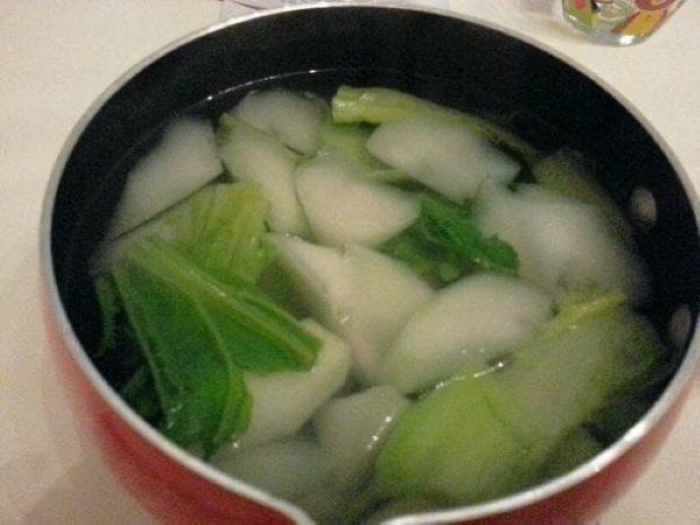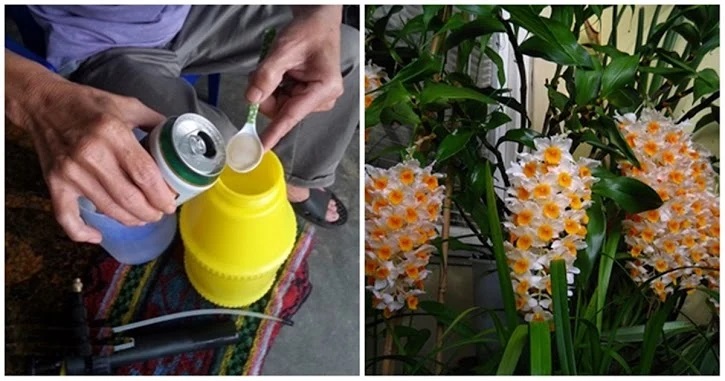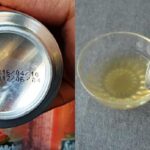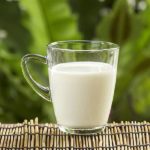Here are four types of excess water that can be used for efficient watering:
1. Boiled Vegetable Water
Not only are boiled vegetables good for your health, but the water used can also be beneficial for your plants. This is because the water contains many nutrients that are essential for plant growth.

Using Leftover Boiled Water for Gardening
However, it is important to let the water cool down before using it to water your plants, as hot water can damage or even kill them. By using this water, you are not only providing your plants with essential nutrients but also creating a conducive environment for their growth while being resourceful and economical.
Note: If you add spices or salt to your boiled vegetables, it is best not to use that water for your plants. The high salt content can negatively affect their growth, causing leaves to drop and plants to wither.
In addition to salt-free boiled vegetable water, there are other types of kitchen wastewater that can be used for watering plants, such as water used for boiling eggs, or even milk.
2. Unused or Expired Milk
Milk is packed with nutrients that are beneficial for plants. If you have unused or expired milk at home, don’t throw it away! Instead, use it as an effective fertilizer for your garden plants.
It is not advisable to pour pure milk on your plants as it can be wasteful. Dilute the milk with water in a 1:1 ratio and pour it around the base of your plants. If you have any milk left over, you can put it in a spray bottle and spray it onto the leaves.
The nutrients in milk will help your plants thrive and promote lush, green growth.
3. Leftover Beer
Beer is often a staple at gatherings and celebrations with friends and family. However, it is common to have leftover beer after such events, and pouring it out would be a waste. This is where your garden comes in!

Using Beer for Gardening: Greener and Healthier Plants
Beer contains protein, and when combined with CO2 in the air, it creates a significant amount of microorganisms that can substitute for pesticides. Not only does beer provide nutrients to your plants, but it also acts as a natural repellent and killer of harmful insects in your garden.
Additionally, beer is particularly effective against slugs, which can be a nuisance to your plants.
4. Green Tea Residue
Green tea increases the acidity of the soil due to its tannic acid content. This helps improve the soil’s nutrition and oxidation, leading to healthier plant growth.
However, it is important to use tea leaves sparingly as excessive use can make the soil too acidic, which is detrimental to the health of your plants and the soil itself.
The Ultimate Guide to Shining Your Leather Shoes Without Shoe Polish
“Unleash the shine within your leather shoes without resorting to the traditional shoe polish. Discover the hidden powers of everyday items like ripe banana peels, fresh milk, and potatoes. These unconventional heroes will breathe new life into your beloved footwear, leaving them with a dazzling glow that’s sure to turn heads. Prepare to be amazed as we reveal the secrets to achieving that impeccable shine, all without breaking the bank.”
Don’t Waste Expired Milk, Utilize This Method to Bring Many Benefits and Save Money
 Milk, Utilize This Method to Bring Many Benefits and Save Money’>
Milk, Utilize This Method to Bring Many Benefits and Save Money’>If your milk has expired, don’t worry, there are still ways to make use of it.




































